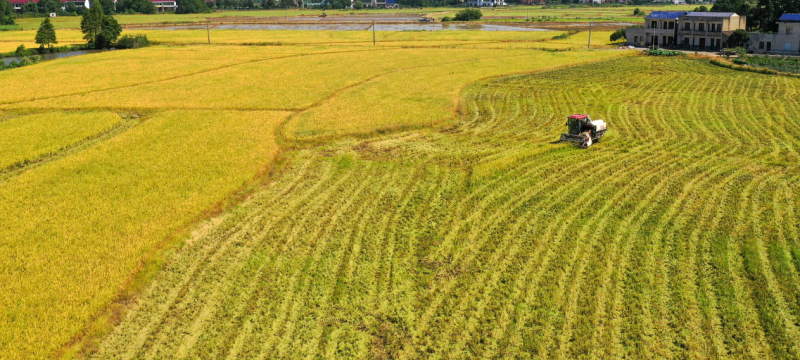Chinese researchers have discovered a key gene, QT12, that dramatically improves rice’s heat tolerance while enhancing both grain quality and yields a development that could bolster food security as climate change accelerates. The breakthrough, made by scientists at Huazhong Agricultural University, was published in the journal Cell.
QT12 strengthens rice grains against heat stress by interacting with the NF-Y protein complex, safeguarding starch and protein synthesis even under extreme temperatures. Field trials during last year’s Yangtze River basin heatwave showed yield boosts of up to 77.9% in some areas.
Also Read: Ambassador Jiang Zaidong Attended Distribution Ceremony of Chinese Agricultural Equipment and Tools
When incorporated into the hybrid variety “Huazhan,” QT12 not only increased output but also improved grain quality, offering a solution to counter climate-induced yield losses. Researchers are now partnering with agricultural companies to fast-track commercial adoption of the gene.
This innovation is poised to benefit rice production not only in China but in other heat-prone regions worldwide, offering a promising path for future climate-resilient crops.









